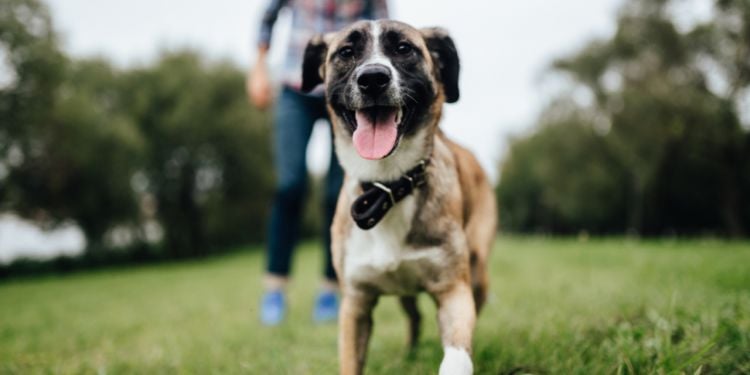
When moving to a new country, we naturally want our pets to be part of the journey. However, this requires following certain essential rules. Are you planning to bring a pet to Luxembourg? Find out all the steps to follow in this article.

Bringing your pet to Luxembourg from a non-EU country
If you're entering Luxembourg from a non-EU country with pets like dogs, cats, ferrets, or horses, there are specific requirements to meet. Your pets should be appropriately identified, either through a microchip implanted beneath their skin or a pre-2011 tattoo. They also need up-to-date primary and booster rabies vaccinations. Moreover, a rabies antibody test must be conducted at an EU-approved lab at least 30 days after vaccination.
In addition to these steps, make sure you have the original health certificate from a veterinarian in your home country. This certificate must be presented along with proof of rabies vaccination or included in your pet's passport for antibody testing when you enter the EU. If antibody testing isn't available, your pet may face quarantine upon arrival. A clinical examination of the animal must also be carried out by a veterinarian within 48 hours before departure. This examination must be recorded in the animal's passport.
For pet birds, you'll need a health certificate and a statement from the owner or their representative. The bird must meet certain conditions, including isolation or vaccination against avian influenza, as well as testing negative for H5N1 virus through a PCR test, if applicable. However, these requirements don't apply to birds from specific countries.
For pets coming to Luxembourg from the EU
When traveling within the EU with dogs, cats, and ferrets over three months old, you'll need to:
- ensure they are microchipped for identification;
- vaccinate them against rabies following the vaccine manufacturer's recommendations. The first vaccine dose is valid 21 days after completing the vaccination protocol;
- carry a European passport indicating their identity and rabies vaccination;
If the animal is less than three months old and has not been vaccinated against rabies, it must be accompanied by a declaration signed by its owner. This declaration must confirm that the animal has not been in contact with any potentially rabies-infected animals and has stayed exclusively at its place of birth. Alternatively, the declaration can state that the animal is traveling with its mother.
Bringing other small pets in Luxembourg
It's possible to bring other small pets to Luxembourg, such as domestic rodents, rabbits, aviary birds, reptiles, amphibians, invertebrates, and decorative tropical fish from an EU country. However, they must have a health certificate issued by an approved veterinarian confirming their good health and absence of specific diseases within 48 hours before departure.
Limit on imported animals in Luxembourg
Each traveler is allowed to bring up to five animals. If the number is five or fewer, the identity check for the animals and their accompanying documents is carried out at the passenger entry point. However, if more than five animals are being imported, the inspection must be conducted at a border control post by veterinary services.
Animal identification and registration in Luxembourg
In Luxembourg, dogs need to have a microchip for identification, which should be done by an approved veterinarian. The owner covers the associated costs. Cats and ferrets can also be identified using a microchip or an acceptable tattoo if it meets the criteria. This applies to travel within the EU.
Dog owners are also required to register their four-legged companions with the local municipal administration (gemeng) in their commune of residence. This registration is mandatory, as dog owners must pay an annual tax, the amount of which varies by commune but is generally around €30 per year. Additionally, they are required to have liability insurance for their dog and must provide proof of this insurance when registering with the commune. In case of a move, a new registration must be completed with the municipal administration of the new commune of residence.
Useful links:
For more information, you can visit the following websites:
Veterinary Services Administration (ASV): https://agriculture.public.lu/de.html
Customs administration: www.do.etat.lu
Commission européenne ' Laboratoires agréés par l'Union Européenne pour le titrage sérique des anticorps antirabiques: https://food.ec.europa.eu/animals/movement-pets/designated-laboratories-performing-rabies-antibody-titration-tests_en
Association of Veterinary Surgeons of the Grand Duchy of Luxembourg: https://www.lak.lu/fr
Travelling with pets and other animals in the EU: https://europa.eu/youreurope/citizens/travel/carry/pets-and-other-animals/index_en.htm
We do our best to provide accurate and up to date information. However, if you have noticed any inaccuracies in this article, please let us know in the comments section below.







